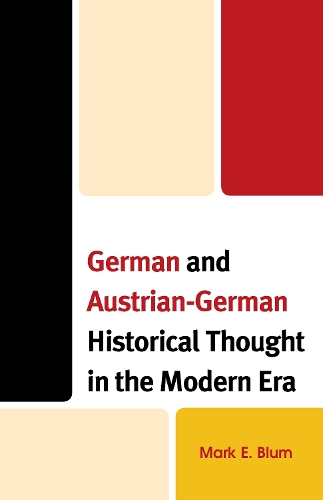
German and Austrian-German Historical Thought in the Modern Era
(Hardback)
Publishing Details
German and Austrian-German Historical Thought in the Modern Era
By (Author) Mark E. Blum
Bloomsbury Publishing PLC
Lexington Books
12th December 2019
United States
Classifications
Professional and Scholarly
Non Fiction
Philosophy
Physical Properties
Hardback
348
Width 159mm, Height 228mm, Spine 24mm
653g
Description
Every nation develops a narrative structure for thinking about history generated by its own historical experience. In this study, the German and Austrian German historiasthe way the narratives of factual significance are structured as the story of the eventsare shown in their sameness from the late 1600s to the present. Herodotus spoke of historia in our evidence of Western thought, by which he meant both inquiry and story. The story of how the one and the many in the society become differs in each national culture. While the interpretations of historical reality among historical thinkers in each period of modernism may differ within a national culture of a time, the narrative structure is shared by each thinker of that society, learned in their public and self-education within the societys normative template. This historia shapes the emphases of how meaning is articulated among the historians of a societyin this book, Germany and Austriaregardless of their guiding ideas. The author argues that these societies can become more open to what has occurred in the historical thought that guides them if they see the constriction and oversights generated by the narrative style of their traditional historia.
Reviews
This study is a significant demonstration of the importance of historia and the narrative construction of historical identity in the distinct German and Austrian-German cultures. The scope of the research, the depth of analysis, and the rigor of the argument all reflect Mark Blum's experience as an intellectual historian. It is hard to think of another scholar with the sympathy and imagination to do this work. Blum writes as if he knew these historians, writers, and philosophers personally.--Steven T. Ostovich, The College of St. Scholastica
Author Bio
Mark E. Blum is professor of history at the University of Louisville.
